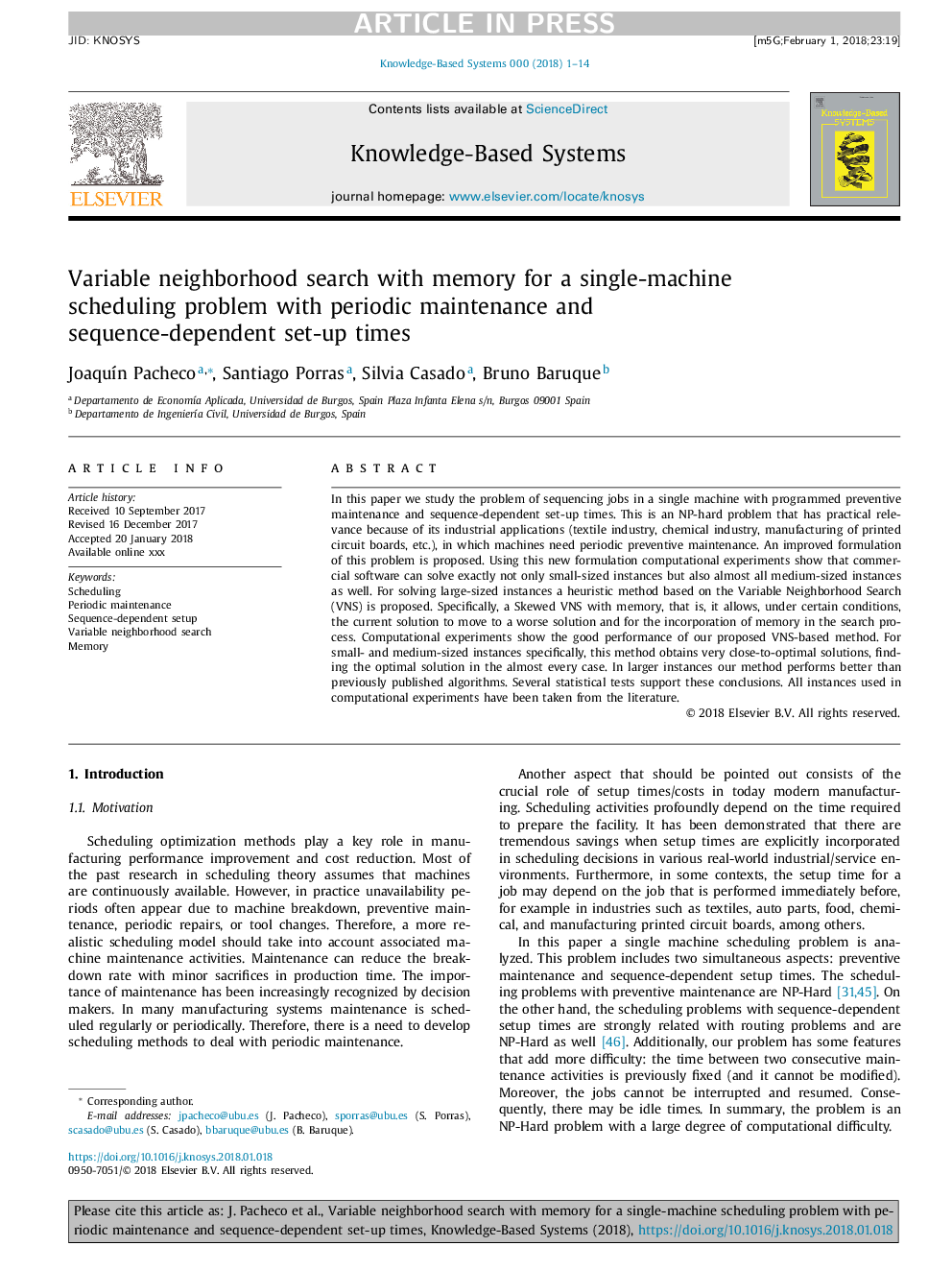ترجمه فارسی عنوان مقاله
متغیر جستجوی محله با حافظه برای یک زمانبندی یک ماشین زمانبندی با نگهداری دوره ای و زمان تنظیم وابسته به دنباله
عنوان انگلیسی
Variable neighborhood search with memory for a single-machine scheduling problem with periodic maintenance and sequence-dependent set-up times
| کد مقاله | سال انتشار | تعداد صفحات مقاله انگلیسی |
|---|---|---|
| 108061 | 2018 | 14 صفحه PDF |
منبع

Publisher : Elsevier - Science Direct (الزویر - ساینس دایرکت)
Journal : Knowledge-Based Systems, Volume 145, 1 April 2018, Pages 236-249
ترجمه کلمات کلیدی
برنامه ریزی، نگهداری دوره ای، تنظیم وابسته به دنباله، متغیر جستجوی محله، حافظه،
کلمات کلیدی انگلیسی
Scheduling; Periodic maintenance; Sequence-dependent setup; Variable neighborhood search; Memory;

